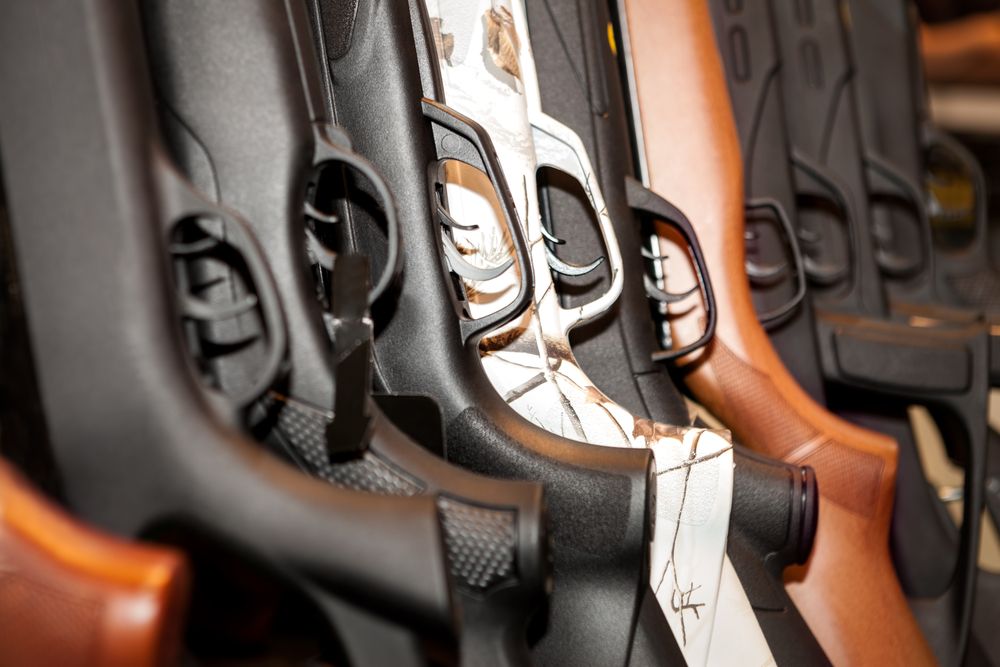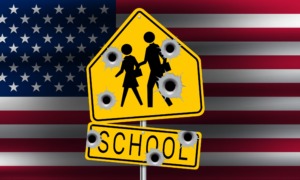
Cherries/Shutterstock
.
Six days. That’s how long it took lawmakers in New Zealand to ban military-style assault weapons following an attack in Christchurch that left 50 people dead and injured about 50 others.
Meanwhile, here in the United States, it’s been over 145 days (counting from March 21) since the Pittsburgh shooting, 400 days since the Parkland shooting, 500 days since the Las Vegas shooting, over 7,275 days since the Columbine shooting and yet we have failed to pass any significant federal changes to make firearms harder to get.
You can blame many factors.
Start with the gun lobby and the lawmakers who take its money and simply send their thoughts and prayers time and time again. But don’t leave out the champions of gun reform who often fall victim to the NRA’s propaganda that has effectively convinced Americans that living in a country that has more guns than people is just the price we have to pay for freedom.
The traditional gun control argument goes something like this: “We need legislation preventing people who shouldn’t have guns from getting them.”
But who are these wrong people and how do you identify them? Are they not simply regular people until the moment they decide to pull the trigger and kill others? And what about the 22,000 Americans who pull the trigger and kill themselves every single year? Are they the wrong people as well? How can we know?
New Zealand and almost every other industrialized nation in the world isn’t dividing the world into good guys and bad guys as we Americans do. It’s reducing gun deaths not by changing human behavior of would-be murderers but by creating an environment where everyone is less likely to be injured by a firearm. In considering new reforms to tighten its gun licensing and registration requirements, New Zealand is raising the standard for firearm ownership around the country and building a future with fewer guns.
Not ‘the nut behind the wheel’

Igor Volsky
That’s a lesson we in the United States need to learn; after all, we championed this approach in successfully reducing injuries and deaths in motor vehicles (that other symbol of masculinity and freedom).
For the first half of the 20th century, “the traffic safety establishment perpetuated the belief that drivers were responsible for accidents. … Drivers were suspect, while the actions of engineers and automakers were unquestioned. [The proposed remedies] dealt with eliminating driver fault.” The motor industry was in denial, with slogans like “It’s the nut behind the wheel.” Its leaders argued that all we had to do was educate people to become better drivers.
In the second half of the 20th century, thanks to the persistent factualism of doctors and scientists, we changed our approach. As a country, we stopped blaming drivers for their deaths and instead established speed limits, installed lighting on our roads, greatly improved the safety features in cars and tightened the standards one must meet to become a driver.
David Hemenway, a public health researcher at Harvard, writes in his classic “Private Guns, Private Health,” “It is, after all, often easier to change the behavior of a few corporate executives at one point in time than that of two hundred million drivers on a daily basis.”
The same logic has to apply to guns. It is far more efficient (and effective!) to pass reforms that regulate the firearm industry, banning certain firearms entirely, mandating that weapons are manufactured with mandatory safety features and requiring all would-be-gun owners to jump through several hoops before acquiring a firearm, than it is to change the behavior of millions of people once they already have guns in their hands.
Two decades ago, gun control advocates made a specific choice to focus on “wrong hands” messaging instead of the guns themselves to try to court gun owners and conservatives. That strategy has failed to secure major changes and has only helped reinforce the gun lobby’s propaganda. The sooner we all recognize that guns themselves are inherently dangerous and thus must be significantly harder to get for all, the sooner we can follow the example of New Zealand and begin the process of constructing safer American communities.
Igor Volsky (@igorvolsky) is the executive director of Guns Down America. His book, “Guns Down: How To Defeat The NRA And Build A Safer Future With Fewer Guns,” is due out in April.































